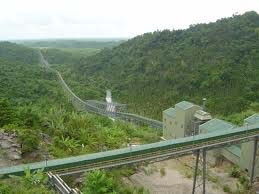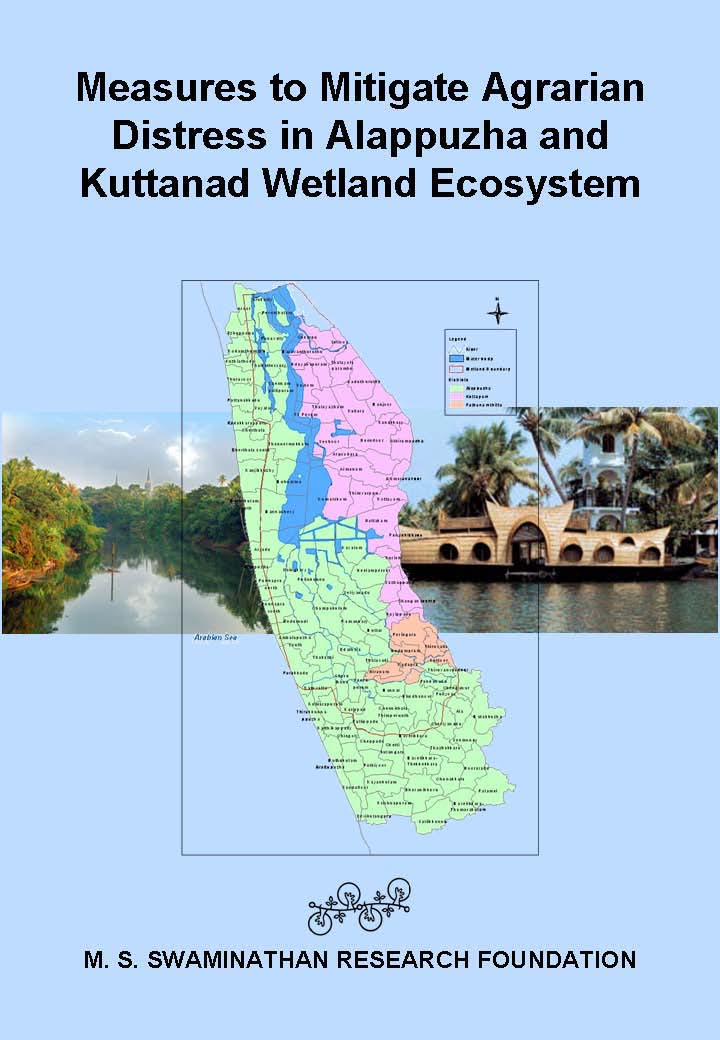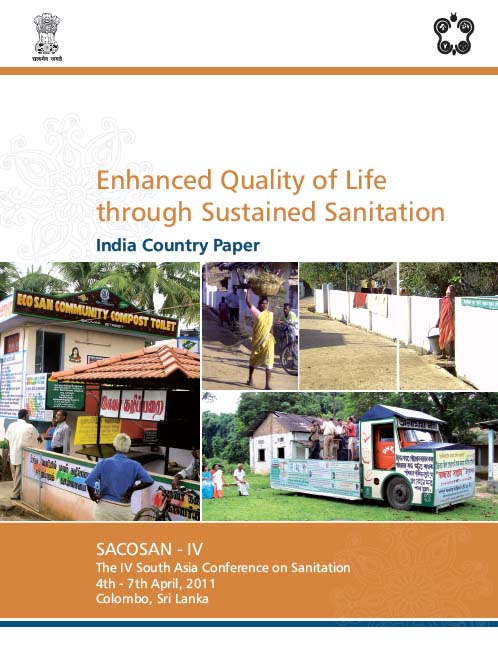Policies, Laws and Regulations
Ministry of Environment and Forest hails Supreme Court Order on Lafarge mining in July 2011
Posted on 07 Jul, 2011 09:28 PM
Photo Courtesy: NewsofAP.com
. The apex court also upheld the revised environmental clearances given to Lafarge by the Ministry of Environment and Forest (MoEF) and invoking the principles of sustainable development, inter-generational equity and the doctrine of proportionality the Bench stated “The word “development” is a relative term. One cannot assume that the tribals are not aware of principles of conservation of forest. In the present case, we are satisfied that limestone mining has been going on for centuries in the area and that it is an activity which is intertwined with the culture and the unique land holding and tenure system of the Nongtrai village. On the facts of this case, we are satisfied with the diligence exercise undertaken by MoEF in the matter of forest diversion.”
The Government of India adopts the Remote Sensing Data Policy (RSDP), 2011: A policy released by ISRO
Posted on 07 Jul, 2011 08:31 PM
Reports of environmental clearance being given to Vedanta at Niyamagiri incorrect - A press note by MoEF
Posted on 05 Jul, 2011 12:21 PMThe Environmental Clearance in that area which was considered in the Ministry of Environment and Forests in fact pertains to the Lanjigarh Bauxite Mining Project, located inter alia in Niyamgiri Reserve Forest covering two districts Raigarha and Kalahandi of Odisha, belonging to M/s Orissa Mining Corporation Ltd.
Sharing the wealth of minerals – A report by Centre for Science and Environment on profit sharing with local communities
Posted on 03 Jul, 2011 08:57 AM The report submits the idea that proposal will go a long way in reducing poverty and deprivation in the mining affected areas. It states that the mining industry’s opposition to the proposal has no basis - statistics prove that sharing profits will not dent the industry’s profitability.
The report submits the idea that proposal will go a long way in reducing poverty and deprivation in the mining affected areas. It states that the mining industry’s opposition to the proposal has no basis - statistics prove that sharing profits will not dent the industry’s profitability.
The central government has come out with a draft Mines and Minerals (Development and Regulation) Bill, 2010 (MMDR Bill) to replace the 1957 Act. The draft bill which has been vetted by a GoM, includes this provision of sharing benefits. The CSE analysis comes out in strong support of this proposal, and clearly establishes how timely and necessary this provision is.
Mining companies and industry in general have been opposing the government’s recent proposal. Their contention is that this provision, if passed by Parliament, would drastically dent their profitability.
Measures to mitigate agrarian distress in Alappuzha and Kuttanad wetland ecosystem – A study report by MSSRF
Posted on 01 Jul, 2011 06:51 AM In spite of its natural wealth, the Alappuzha district has a high proportion of population living in poverty.
In spite of its natural wealth, the Alappuzha district has a high proportion of population living in poverty.
Recognizing that the process of preparation of a mitigation plan report is as important as the product, the MSSRF team held wide ranging consultations with all concerned with the economy, ecological security and livelihood security of Kuttanad wetlands. Information on the consultations held and visits made are given in the report. It contains a malady-remedy analysis of the problems and potential solutions.
The greatest challenge in dealing with multidimensional problems in our country is our inability to generate the necessary synergy and convergence among the numerous government, non-government, civil society and other agencies involved in the implementation of the programmes such as those outlined in this report. This is why the team has suggested both high-level policy guidance and monitoring committee as well as a task implementation mechanism.
Low carbon strategies for inclusive growth - An interim report of the Planning Commission's expert group
Posted on 28 Jun, 2011 11:44 PM Some policy measures implied by various options have also been indicated. The main sectors examined in the report are power, transport, industry, buildings and forestry.
Some policy measures implied by various options have also been indicated. The main sectors examined in the report are power, transport, industry, buildings and forestry.
Increased concentrations of Green House Gases (GHGs) and the overall warming of the atmosphere has resulted in changing rainfall patterns, disruption in hydrological cycles, melting of ice caps and glaciers, rise in sea levels, and increase in frequency and intensity of extreme events such as heavy precipitation and cyclonic activities.
These have in turn had serious impact on sustainability of water resources, agriculture, forests and ecosystems, affecting the well being of billions of people on earth. Widespread melting of glaciers and snow cover will reduce melt water from major mountain ranges (e.g. Hindu Kush, Himalaya, Andes) where more than one billion people currently live.
Challenges of food security and its management: A position paper by the National Rainfed Area Authority
Posted on 28 Jun, 2011 08:07 AM The paper also discusses their future potential and possible impact on national food security of diversification into non-PDS, fruits, vegetables and other commercial crops. This kind of analysis is likely to help planners and policy makers in choosing appropriate policy framework in evolving the strategies for enacting and operationalization of Food Security Act.
The paper also discusses their future potential and possible impact on national food security of diversification into non-PDS, fruits, vegetables and other commercial crops. This kind of analysis is likely to help planners and policy makers in choosing appropriate policy framework in evolving the strategies for enacting and operationalization of Food Security Act.
With increase in population, income and urbanization, the demand for food grains has also increased and diversified. Although there has been more than four-fold increase in food grain production from 1950-51 (50.82 mt) to 2008-09 (233.88 mt), a large section of our population continues to suffer from malnutrition and inadequacy of food grains. On the other hand degradation of land, water and other natural resources have started impacting production through increased biotic and abiotic stresses.
Enhanced quality of life through sustained sanitation - India country paper for South Asia Conference on Sanitation
Posted on 24 Jun, 2011 10:09 PM This India Country Paper on Enhanced Quality of Life through Sustained Sanitation was prepared for South Asia Conference on Sanitation (SACOSAN) IV held at Colombo, Sri Lanka in April, 2011.
This India Country Paper on Enhanced Quality of Life through Sustained Sanitation was prepared for South Asia Conference on Sanitation (SACOSAN) IV held at Colombo, Sri Lanka in April, 2011.
In rural sanitation, India’s flagship rural sanitation programme, the Total Sanitation Campaign (TSC), continues to be implemented with renewed vigour, and improvements in multiple facets of the programme. The TSC programme was given a further boost with the introduction of the Nirmal Gram Puraskar (NGP), an innovative incentive scheme for Gram Panchayats, Blocks and Districts. The rural sanitation sector has continued to receive increasing budgetary support.
Uttar Pradesh Urban Sanitation Policy - Jawaharlal Nehru National Urban Renewal Mission - Government of India (2010)
Posted on 18 Jun, 2011 10:41 PMThe factors that lead to this poor sanitation situation in the city include:
Capacity and investment in the water supply and sanitation sectors - Guidelines in respect of participation of cooperative institutions (2006) - Water Supply and Sanitation Department (Government of Maharashtra)
Posted on 18 Jun, 2011 10:20 PMIt argues that this is because civil bodies are facing many problems due to urbanisation and increasing demand from the residents. There is a need to increase efficiency in the water supply and sewage.